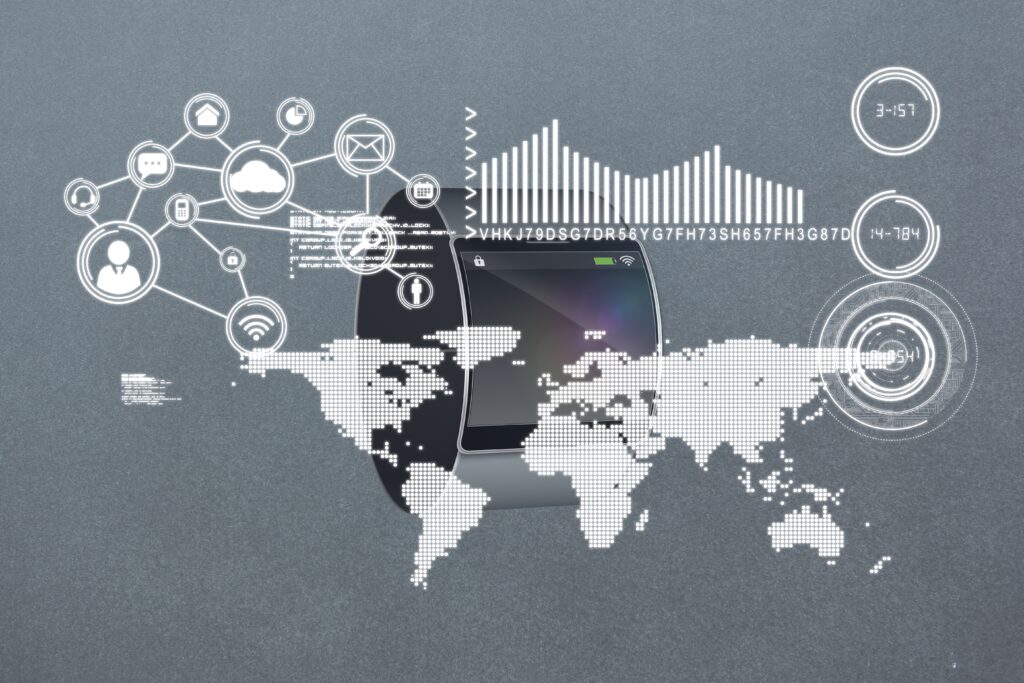Top 10 Digital Transformational Patterns for Companies Forecasting 2025
Introduction
Digital transformation will keep redefining sectors using creative technology and strategic developments in 2025. Businesses have to change with the times if they are to remain competitive, improve effectiveness, and satisfy changing consumer expectations.The following are the ten digital transformation trends most influencing companies in 2025:
- Automation Driven by AI Artificial intelligence (AI) will transform automation to unprecedented levels, thereby enhancing company efficiency, lowering human mistakes, and streamlining processes. From intelligent process automation to AI-powered customer care chatbots, companies will rely mostly on AI-driven solutions to simplify operations.
- Hyperautomation Combining artificial intelligence, machine learning (ML), robotic process automation (RPA), and other digital tools, hyperautomation end-to-end automates challenging business processes. This method improves accuracy, reduces hand-off, and accelerates decision-making.
- Edge and 5G Computing Ultra-fast connectivity and real-time data processing made possible by 5G network and edge computing will boost IoT applications, enable smart manufacturing, and provide minimal latency remote work experiences.
- AI-Powered Cybersecurity AI-driven security solutions will become crucial as cyberthreats develop. To safeguard private information and stop cyberattacks, companies will use predictive analytics, artificial intelligence-based threat detection systems, and automated incident responses.
- Integration from the Metaverse Offering virtual environments for meetings, training, and consumer interactions, the metaverse will become a major commercial tool. Businesses will investigate metaverse platforms to increase digital commerce, boost teamwork, and provide immersive consumer experiences.
- Ecological Technology Alternatives Strategies of digital transformation will center on sustainability. To comply with environmental laws and lower their carbon footprint, companies will embrace green computing, energy-efficient data centers, and sustainable software development methods.
- Compliance with Data Privacy Growing data privacy rules will force companies to concentrate on following worldwide data protection legislation, including GDPR, CCPA, and India’s DPDP Act. Businesses will invest in privacy-enhancing technologies, safe data management, and open policies to inspire consumer confidence.
- Blockchain for Enterprise Beyond cryptocurrencies, blockchain technology will revolutionize supply chain management, financial transactions, and identity validation. Blockchain will be embraced by companies for smart contracts, increased security, and openness.
- Low-code or no-code development Low-code and no-code systems will enable companies to create applications quickly with no technical knowledge. This method will offer more flexibility, cost control, and quick prototyping in software development.
- AI-Driven Individualism Personalized AI will transform customer experience. Using AI analytics, companies will be able to better grasp consumer behavior, forecast preferences, and provide hyper-personalized goods and services, hence fostering higher customer loyalty and happiness.
Practical Case Study
One prominent instance of digital transformation is Amazon’s supply chain and customer service utilization of artificial intelligence and automation. By use of advanced robotics in warehouses, artificial intelligence-powered recommendation engines, and automated customer care chatbots, Amazon has optimized logistics, raised efficiency, and boosted user experience. The company’s smart technology, cloud computing, and data analytics investments established a standard for companies trying to digitally revolutionize their operations.Conclusion
By 2025, sustainability, artificial intelligence, automation, and improved connectivity will propel digital transformation. Companies that want to keep ahead of the competition, improve efficiency, and satisfy client needs have to adopt these trends. Strategic integration of several technologies helps businesses to future-proof their operations and attain long-term success.FAQ
- Q1. Why do companies find digital transformation so vital? In an always-changing technology environment, digital transformation guarantees organizations remain competitive, lowers costs, increases customer experiences, and improves productivity.
- Q2. How might artificial intelligence support digital transformation? AI makes companies more data-driven and efficient by enabling automation, better decision-making, security enhancements, and customer experience personalization abilities.
- Q3. Which sectors in 2025 will most gain from digital transformation? Advanced networking technologies, artificial intelligence, and automation will help sectors including banking, healthcare, manufacturing, retail, and logistics, especially.
- Q4. How may companies get ready for these tendencies toward digital transformation? To keep ahead, companies should make investments in new technologies, equip staff members with digital skills, prioritize cybersecurity, and use agile approaches.
- Q5. Is digital transformation reserved for big companies only? No, small and medium-sized companies can also gain by using scalable digital solutions, process automation, and cloud-based service leveraging.


